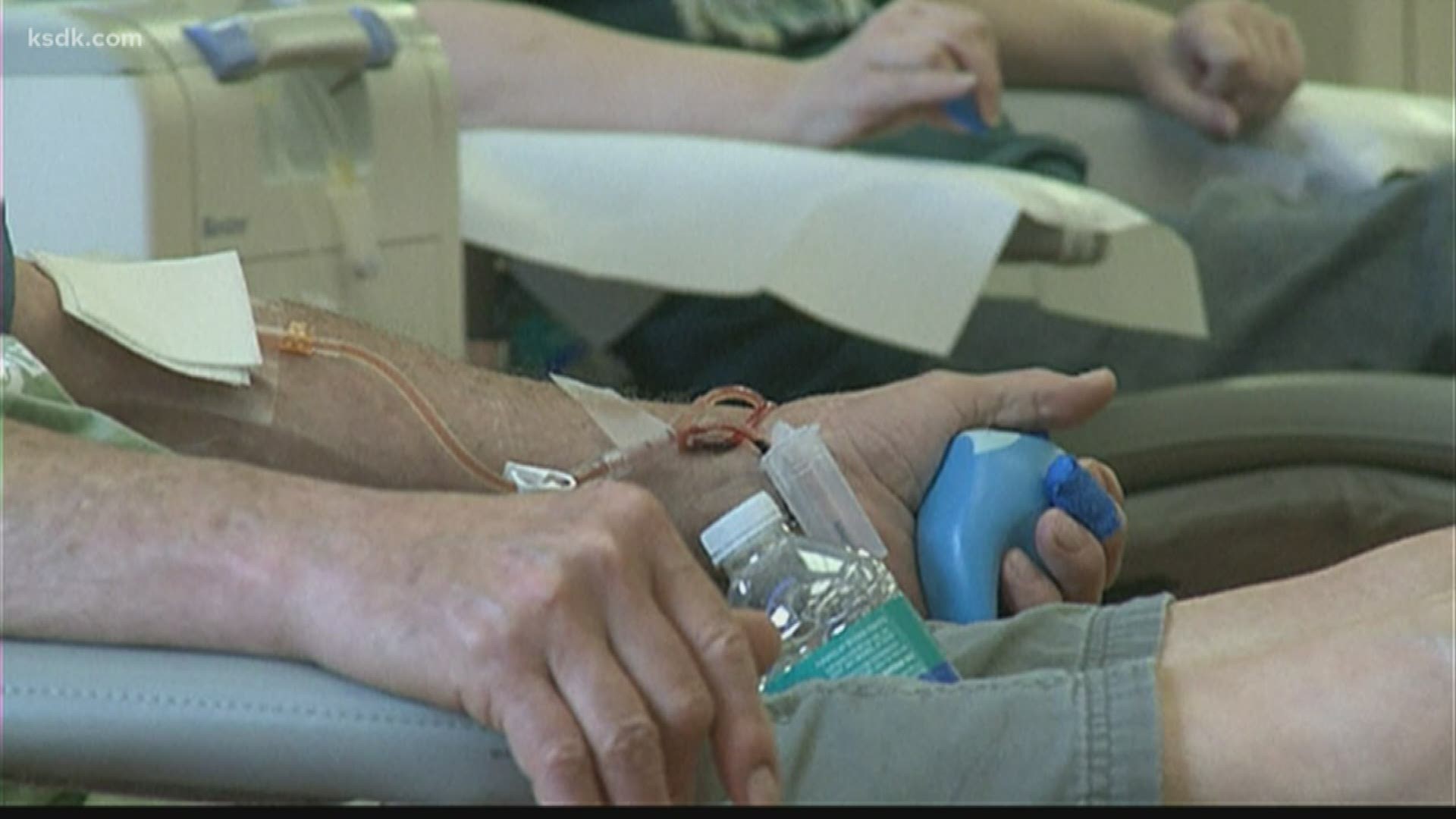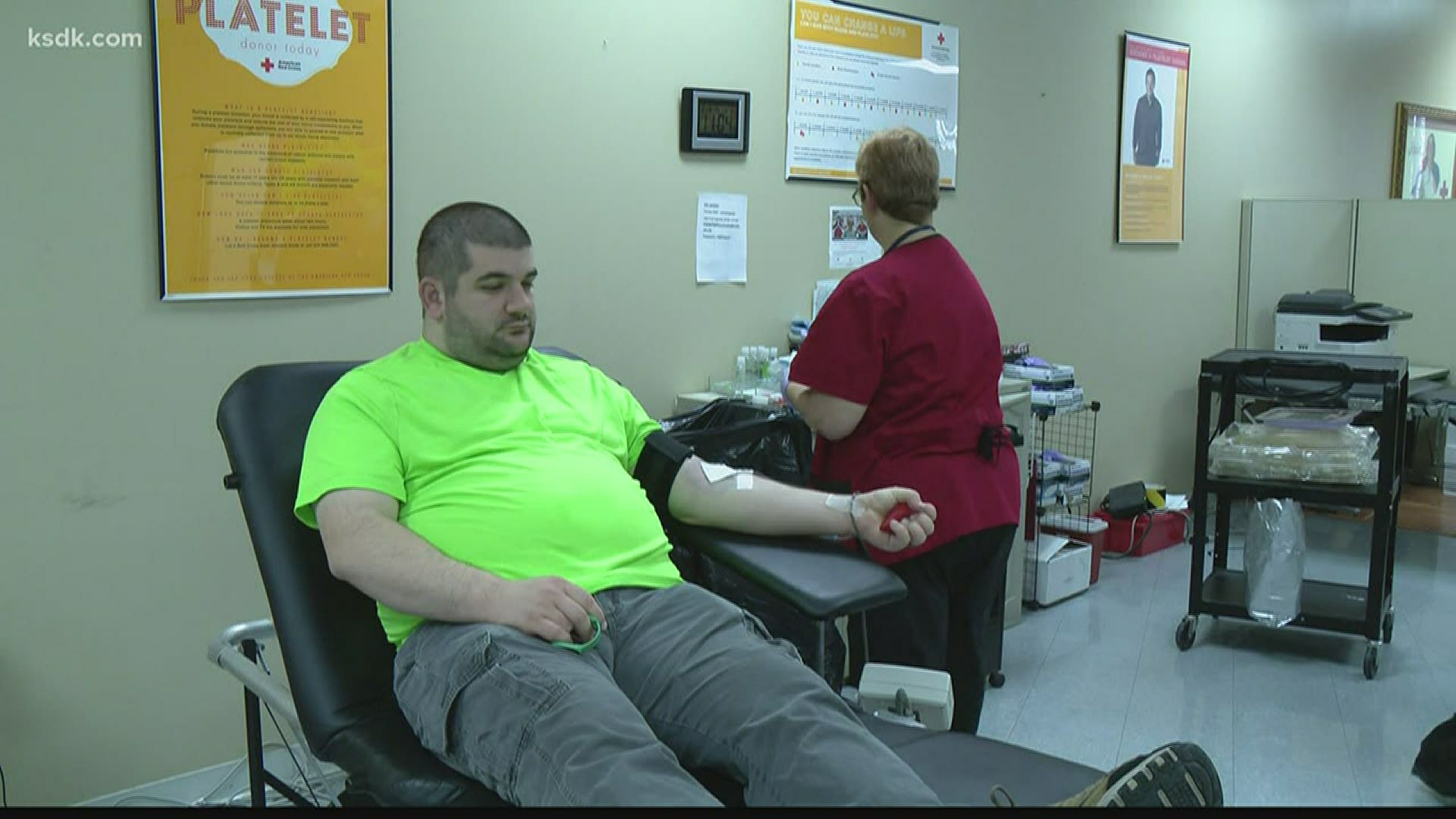ST. LOUIS — Physicians from the Washington University School of Medicine are looking for more donors in their blood plasma program, aimed at helping critically ill patients fighting COVID-19.
A group of doctors from Washington University began enrolling potential donors last week.
The blood plasma from people who have recovered from COVID-19 has antibodies that target the virus, according to a press release. When doctors transfuse the plasma from recovered patients to those currently sick from the coronavirus, it may help treat the infection. This same approach has been used against other viral illnesses like polio, influenza and SARS.
The Washington University program has already received a large response.
"The response from the community has been extraordinary," principal investigator on the study MD, PhD Rachel Presti said in a release. "In the first two days we received emails from 50 people who wanted to donate, and that was before we had even begun publicizing our contact information. So many people want to help fight this pandemic any way they can."
The potential donors will go to the Washington University Medical campus to get their noses swabbed and blood drawn to be tested for antibody levels. Those who meet the criteria for plasma donation will make donations at their local blood banks, coordinated by the Red Cross. Plasma donations will be given to COVID-19 patients in intensive care at Barnes-Jewish Hospital or other locations that could benefit.
A few tubes of blood from each donor will also be sent to research labs so investigators can analyze the immune response to the virus and potentially develop new treatments and tests.
If you want to participate in the program, you must have had a positive COVID-19 test while sick. Those who were retested after recovery must be symptom-free for at least 14 days after testing negative. Those who were not retested must have not had symptoms for at least 28 days.
If you're interested in participating, email the study organizers at IDCRU@wustl.edu.


